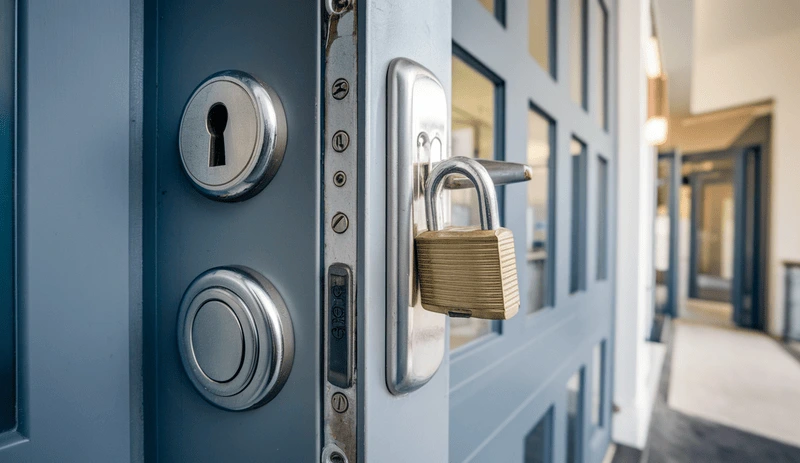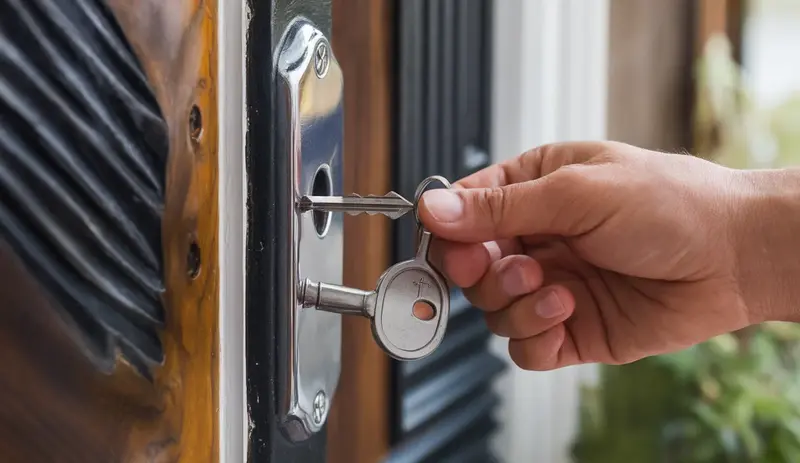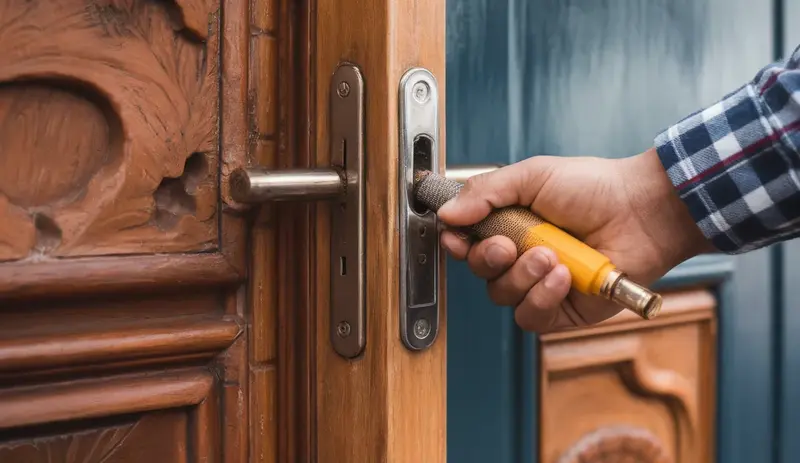
You’ve just invested everything into your small business. The storefront looks amazing, your first customers are rolling in, and then it hits you – how do you actually keep this place safe? Most business owners think security is complicated and expensive, but it doesn’t have to be a nightmare.
Whether you’re running a tiny coffee shop or managing a warehouse, the right locks can make all the difference between feeling secure and constantly worrying.
We’re going to break down everything you need to know about commercial locks – no tech jargon, no complicated explanations. Just straightforward advice from someone who gets how important your business is.
Understanding Commercial Lock Basics: More Than Just a Padlock
Now let’s discuss commercial locks, which are not just plain metal mechanisms. They are far more than that. Our commercial lock systems today are some of the most advanced technological solutions to the problem of securing what is probably your business’s most valuable physical assets. Indeed, “commercial lock” is a term that encompasses a great variety of devices, going way beyond the simple padlock and even the pin-tumbler combination.
The innovation of the keyless entry system has turned commercial security into a precision instrument. These advanced systems allow exactly the kind of access control that the name implies: You control who enters and who does not certain areas of your business. Moreover, it’s as easy to manage as a browser’s bookmarks: You can grant temporary access to contractors, revoke it just as quickly, and do it all as a seamless part of your business operations-without changing a single lock.
There is still a role for traditional keyed locks-especially in all those places that need reliable and straightforward security. They are cost-effective, work well in smaller businesses, and have virtually no learning curve for users. In contrast, smart locks integrate digital tracking, remote management, and, in many cases, comprehensive access logging.
Another key aspect that businesses need to consider is durability. Commercial locks don’t just prevent unauthorized entry; they also need to stand up to the wear and tear of everyday use, the many environmental conditions they’re exposed to, and the attempts at tampering that some people are determined to make. Over the long haul, the quality of the lock is going to be a significant factor in not just the function but also the security of the system.
Top Commercial Lock Recommendations for Different Business Types
Every company is not the same when it comes to security. A retail space has different needs than a medical facility or a warehouse. High-traffic locks with quick entry/exit capabilities are what a retail environment requires. Consider electronic keypad systems. They allow customers unfettered access and require that only employees enter restricted areas.
Access control in office environments tends to be more sophisticated. Integrated with digital management systems, smart locks can do much more than just keep doors secured. They can track who gets in and out and when, offer detailed access reports that can clue you in to your office’s operational efficiency, and restrict access to just the right people at just the right times.
Warehouses need strong, sturdy locks. They have too much potentially valuable stuff (and too much space) to be broken into, and too many laborers and temp workers to be inside unsecured after hours. These are big spaces to secure. So how do we keep them safe? A comprehensive warehouse locking system employs three basic types of locks-electronic, mechanical, and padlocks-used in different ways, alongside some smart mounting strategies.
There are distinct demands for locks in restaurants and hospitals. Food service establishments need locks that can take a licking (and keep on locking) through the considerable cleaning they get, while hospital facilities need locks that are as secure as they are in keeping with the health care industry’s privacy laws, like HIPAA. Whether it’s a safe, a door, or an interior office space that needs to be secured, restaurant and medical facility architects and designers can rest assured that there’s a specialized lock that meets their demands.
Budget vs. Security: Finding the Right Balance
Here’s something that isn’t clear to many people: it’s not about spending the most money on security; it’s about making good, strategic investments. To really get what security investment is all about, you should recognize that cheap options aren’t automatically good, but neither are the most expensive options always the best.
The ranges one can expect to pay for commercial locks can be anywhere from $200 to $2,000, depending on how complicated they are. A number of reasonable, affordable, and effective security options exist on the market. One is to look for “hybrid systems,” which combine traditional securing mechanisms with smart technology. These kinds of options provide “robust security” at a price that doesn’t decimate your bottom line.
Warning Signs You Need to Upgrade Your Business Locks
When should you consider upgrading your locks? A high turnover of employees is an obvious reason to think about upgrading. Each new employee means a potential change in your security infrastructure; every new hire is a shift in staff that could leave your security at risk.
You should also consider an upgrade if:
As technology progresses, old lock systems are becoming riskier. Today’s criminals are sophisticated when it comes to technology, and older locks are easier for them to get past. Even our insurance can require us to stay current with certain security measures, so this is also an issue of compliance and not just plain old protection.
Installation and Maintenance: What Business Owners Need to Know
Though some business owners may be tempted to do lock installations themselves, it is generally recommended to hire professional locksmiths. These experts ensure proper installation, guarantee that systems are integrated, and can offer invaluable advice about ongoing maintenance at our local locksmith shop.
The regular maintenance expected includes annual inspections, replacements of batteries for electronic systems, and periodic recalibration. Knowing the right time to replace or repair a lock system can save considerable amounts of money and avoid the potential for security breaches.
Security isn’t about perfection – it’s about making smart, practical choices that protect what matters most. Don’t just read about locks – take action. Schedule a security assessment or talk to a local locksmith who understands your specific business needs.


